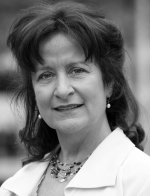RIO and Locational State Theory
The evolving dualistic disequilibrium
Hector McNeill1
SEEL
The economy, in terms of constituents, is made up of two basic groups who have different relationships to economic activities.
The two groups consist of constituents who are asset holders and a control over economic resources used in productive activities, on the one hand, and a second group, made up of constituents whose livelihoods involve selling their services to the productive sector as fees and wages, on the other.
The first group, historically, have been benefactors of political parties, using money as their controlling mechanism and, the second group, wait on what the political parties, as benefactor proxies, deem to provide. This dualism has always existed. "Successful economies", in term of the state of wellbeing of each constituent group, have been able to balance, intentionally or otherwise, the interests of both groups in a dualistic equilibrium. However, as the influence of the asset holding group in policy decision making has increased, the dualistic equilibrium has broken down leading to an evolving state of disequilibrium which increasingly prejudices the group whose income depends on their contributions as inputs to productive activities. The prejudiced group makes up the majority of the British constituency.
This description is not the foundation for a contentious argument on political philosophies and partisan politics. It is first and foremost a statement of the facts. "Truth", as William James has observed, "Is what happens" and therefore there is no inevitability as long as we are prepared to observe what is happening. It would seem that this is a good starting point from which to work towards a solution.
|
The will of the people
In the early seventeenth century an important concept arose that people should be governed by a Parliament of their popular choice. Such a concept was justified by Colonel Thomas Rainborough, a participant in the Putney Debates
2. These were organized by the Levellers at the Church of St Mary the Virgin in Putney in the County of Surrey, in October and November 1647. Colonel Rainborough stated,
"...for really, I think that the poorest he that is in England hath a life to live, as the greatest he; and therefore truly, Sir, I think it's clear, that every man that is to live under a government ought first, by his own consent to put himself under that government; and I do think that the poorest man in England is not bound in a strict sense to that government that he hath not had a voice to put himself under..." |
This concept, although very advanced for the time, but was limited to full male suffrage only. In the early 20th Century, almost 300 years after the Putney Debates concluded, the United Kingdom introduced universal suffrage by including the right of women to vote. Now, almost 400 years after the Putney Debates we have still not attained a state of affairs where the majority of the constituents in Britain, in spite of Rainborough's logic, have an effective voice in determining what governments decide to be the rules and regulations governing economic policies. This, for those who uphold the value of our democratic traditions, such as they are, cannot be true because we hold general elections to select representative to become members of parliament. The misunderstanding arises from the fact that we do not elect our representatives, we elect representatives of political parties.
The will of political parties and governanceThe Levellers, and in particular, John Lilburne and his close associates were realists. While in prison in the Tower of London they drafted one of the first written English constitutions in 1649, which they entitled, "
An Agreement of the Free People of England". In this document they had the foresight to propose constitutional provisions to avoid conflicts of interest. People with specific professions would not be permitted to exercise them while acting as a representative for their community. Members of Parliament were to be elected only once, having to stand down at the next election but they could be elected in a subsequent election. This was a precaution against the build up of embedded interests and to discourage the formation of a class of "professional" politicians. Parliaments were to last one year with annual elections; not to act on this provision was to be considered to be an act of High Treason.
Public officials should be chosen by Members of Parliament and elected each year. This was a move to avoid the formation of so-called factions within government service who could become embedded as permanent and likely to develop arbitrary power and be increasingly prone to corruption.
In short, the Levellers had the foresight to attempt to avoid the formation of political parties.
Unfortunately, those who followed were careful to censor this part of this constitutional proposition leading to our current state of affairs where political parties now control the agenda. However, the preferences embodied in legislation and regulations are not those in which the people have had a say but rather have been shaped by members of parties who are in parliament working together, sometimes in formal sub-committees. Even if all of the party memberships contributed to this process one would be talking about just over 1% of the total electorate. Today, the governing party has a party membership of around 150,000 people or around 0.30% of the UK electorate.
Political parties as convenient proxiesPolitical parties are tiny private organizations whose memberships are largely from the constituency groups who are employed by the goods production or service sectors. No matter what budding politicians declare, their livelihood and status becomes bound up in the party affairs. Any advancement is proportional to their service to the party and the current brand image of the party. However, the objectives of the parties become closely aligned with benefactors or those who give support to help the political party gain power in return to the political party supporting their contributions to policy propositions. Support can be financial, free media coverage, the funding of "research centres" or "think tanks" who advocate specific lines of policy, foreign trips and "consultancy fees" for leading party officials. In most cases benefactors are not looking to the UK constituency as a whole as the beneficiaries of policy propositions but rather to their interest group becoming the beneficiary. As a result, political parties are not the voice of the people but rather convenient and willing proxies for interest groups. The skill of politicians lies in their ability to justify any policy in terms of "the public good" even although, in reality the "public good" will flow to a tiny group of benefactors.
This system has greatly diminished the status of political parties as independent democratic agents and has reduced their role to one of providers of welfare to those benefactors. The image of benefactors is promoted as valiant economic frontiersmen and women, risk takers and providers of employment.
During the last 50 years we have witnessed British political parties stripping back the financial regulations imposed after the 1929 Great Depression. A significant land grab involving public corporation and local authority land resources and privatizations of profitable services at knock down prices. A massive bail out of the financial sector followed the 2008 financial crisis and minimal sanctions were imposed for what were, in many cases, criminal activities such as fraud and financial dealing involving bad faith undertakings. This bail out under quantitative easing, which continues to this day, is further bolstering the incomes and wealth of the main political party benefactors while the public look on.
Today, political parties expect the media and public to endure this outrage for fear of calling attention to it and thereby attract the wrath of the benefactors; this is the lot of wage earners who do not want to rock the boat even although the economy is heading for the rocks.
Any suggestions that better policies exist, that there are alternatives are ignored or attacked, there is no meaningful analysis and discussion. Colonel Rainborough spoke his mind freely during the course of the Putney Debates, during a Civil War, more freely than the expectations of constituents today feel that they can express themselves, for fear of reprisals.

Helena Kennedy |

Sir Paul Judge |
|
But all of this has resulted in the majority of the constituency being marginalized by the political parties acting as proxies for the benefactors. As a so-called democracy, we should be concerned with the preferences of the majority and all income groups and there is a need for a system that improves upon the party system. As Rainborough stated,
"...and I do think that the poorest man in England is not bound in a strict sense to that government that he hath not had a voice to put himself under..." |
The "
Power Inquiry" report chaired by Helena Kennedy and published in 2006 covered a lot of relevant ground but since is was not what the benefactors would wish for, the Labour government whose party included several politicians who held up the Levellers and paragons, ignored this report. However, the main problem with the report, given the involvement of so many "free thinkers", was its failure to spell out the proxy role of UK political parties so the report ended up , as is often the case, shaped by the interests of political parties maintaining the status quo.
The most adventurous stand against this mindset was Sir Paul Judge's formation of the Jury Team as a campaign to transform politics by operating without political parties. Judge was not some erratic subversive, but was a well trained businessman with wide international experience and close association with he UK political establishment and the Conservative party in particular. He was the main benefactor of the Judge Business School at Cambridge University. He understood how things worked. He had the right idea listing many of the points in 2010, raised in the Power Inquiry report. His slogan, "
politics without political parties" was a key and original concept but this became compromised in that, in order to register to receive votes, the Jury Team took had to take on the form of a political party. The Jury Team initiative did not gain sufficient media support, a natural outcome since the media was in the hands of the same benefactors as the political parties and, therefore, coverage was inadequate. In addition the initial "primary voting" system using texting was open to abuse and therefore unreliable.
However, Judge advanced a notion that was explosive as far as the cosy relationship between benefactors and political parties was concerned and the system within which political parties control the agenda, including the electoral system, continues to this day.
It is self-evident that the political parties cannot be relied upon to come up with anything radical and effective in resolving our economic policies predicament and so it is necessary to not involve them in the process of "resolving" the issue. To effectively banish the destructive dualism it is necessary to act without their "help". We need to bear in mind that the most amazing advances in the legal protections of the population did not come from political party initiatives but they came from decisions of constituents by acting out their role as members of juries, in their nullification of laws based on their community conscience they advanced the wellbeing of the majority.
Many of the problems associated with a economic marginalization of the majority are buttressed by laws and regulations which need to be nullified and replaced with more rational laws and regulations.

In a review I conducted in 2005-2006
3 I identified some 49 significant constraints on freedom introduced by political parties over the previous periods.

The paradox is that much of the evidence supporting these findings included contributions from rare members of parliament from across the "political spectrum". So awareness of what is raised in this article exists and is openly acknowledged by a few experienced politicians. In a subsequent article I will explain how policies could become more responsive to the needs of the majority by replacing the tiny archaic self-serving private political parties with a representation where the benefactors' donations consist only of votes as an expression of expectations of all constituents of better things to come. For this nation to become one, this pernicious and divisive dualism needs to end.
Very recently, Agence Presse Européenne (APE) launched a participatory policy formulation portal, Policy Forum, where members of the UK constituency can contribute to the formulation of propositions. The main political parties have resisted the organization of such independent assemblies, including cirizen's juries, which operate outside the ambit of political parties. This is the main reason the Power Inquiry went nowhere. The political parties do all they can to "manage" the agenda. The APE Policy Forum initiative does not involve any political parties and, following APE contract policies, the organizers are not connected with any political party in the UK and are independent of commercial and other media interests. The Policy Forum site can be accessed by clicking on the image on the rights.
1 Hector McNeill is the Director of SEEL-Systems Engineering Economics Lab.
2 Cited in McNeill, H. W., "
The Briton's Quest for Freedom .. Our unfinished journey", Chapter 4, "
A Proposition", pp.33-34, 418 pp., HPC, 2007, ISBN:978-0-907833-01-7.
3 McNeill, H. W., "
The Briton's Quest for Freedom .. Our unfinished journey", 418 pp., HPC, 2007, ISBN:978-0-907833-01-7.
All content on this site is subject to Copyright
All copyright is held by © Hector Wetherell McNeill (1975-2020) unless otherwise indicated